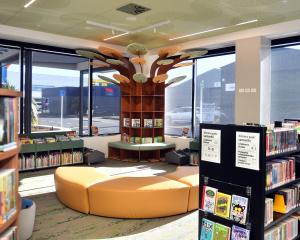
K9 Medical Detection NZ (K9MD), which has a team of eight highly trained and trainee cancer-detection dogs, has been named as the official charity for the Dunedin Marathon event on September 10.
About 2000 competitors are expected to line up for the giant community event, which will include a full marathon, half marathon run and walk, as well as a 10km and 5km run and walk.
During the event, representatives of K9MD will be collecting for the charity.
Competitors are also being urged to donate online.
Those using event car parking at Logan Park High School and off Harbour Tce in Logan Park will be asked for a gold coin (or more) donation to K9MD.
The proceeds will go towards supporting the remarkable work of K9MD to use specially trained dogs, working in a controlled clinical environment, to assist in the detection of bowel, prostate and ovarian cancers through diagnostic urine tests.
K9MD founder and chief executive Pauline Blomfield was delighted that the organisation had been selected as the official charity for the marathon.
"It’s a very prestigious event to be involved in — we are so grateful for their support.
"It is also a great chance for us to talk about the work that we do, which could help a lot of people.
"At the end of the day, everyone has been touched by cancer in some way."
At its training facility at the Invermay campus, K9MD’s team of scientists and expert trainers work with eight dogs at various stages of training, using specially designed equipment to create new, non-invasive diagnostic tests as a "value-added tool" within the health system.
A dog’s sense of smell is so sensitive that they can detect scents of 1-2 parts per trillion, the equivalent of a human detecting 1-2 teaspoons of sugar in two olympic-size swimming pools.
"It is a very complicated process.
"Everything we do has to have ethics approval and authorisation.
"We have strict protocols to follow, and must engage nurses in each region to work with patients.
"Once we have samples, they need to be transported and stored before they get to the dogs — it all takes time and funding."
The eight dogs in the K9MD squad are trained, or in training, to detect three types of cancer.
Levi, Weta and Hero work on bowel cancer; Freida, Ace and Magic work on prostate cancer; and training is beginning with Hunter and Hogan on detecting ovarian cancer.
"We are very excited to be now talking with health authorities in Canterbury about recruitment of bowel cancer patients and prostate cancer patients for clinical trials.
"It’s also great to get started on ovarian cancer, because if we can help provide early indications of cancer, it can help save lives.
"Our aim is to create non-invasive procedures that can help prioritise patients who need further tests and treatment, and give peace of mind to those who don’t.
"Moving forward with these diagnostic tests is significant and very exciting for us."
With no government funding, the work of K9MD is reliant on grants from Aotearoa Gaming Trust, Invercargill Licensing Trust, Lindsay Foundation, and gifts from private donors.
The cost of the running the organisation stands at $800,000 this year, and is expected to rise to more than $1million next year.
Ms Blomfield said K9MD was also seeking extra funding to help cover the cost of building comfortable, air-conditioned kennels for the dogs during the day when they were not working.
"The dogs all love their work — for them it is structured play.
"And they all go home at night and live with families — they have a very good work-life balance."











